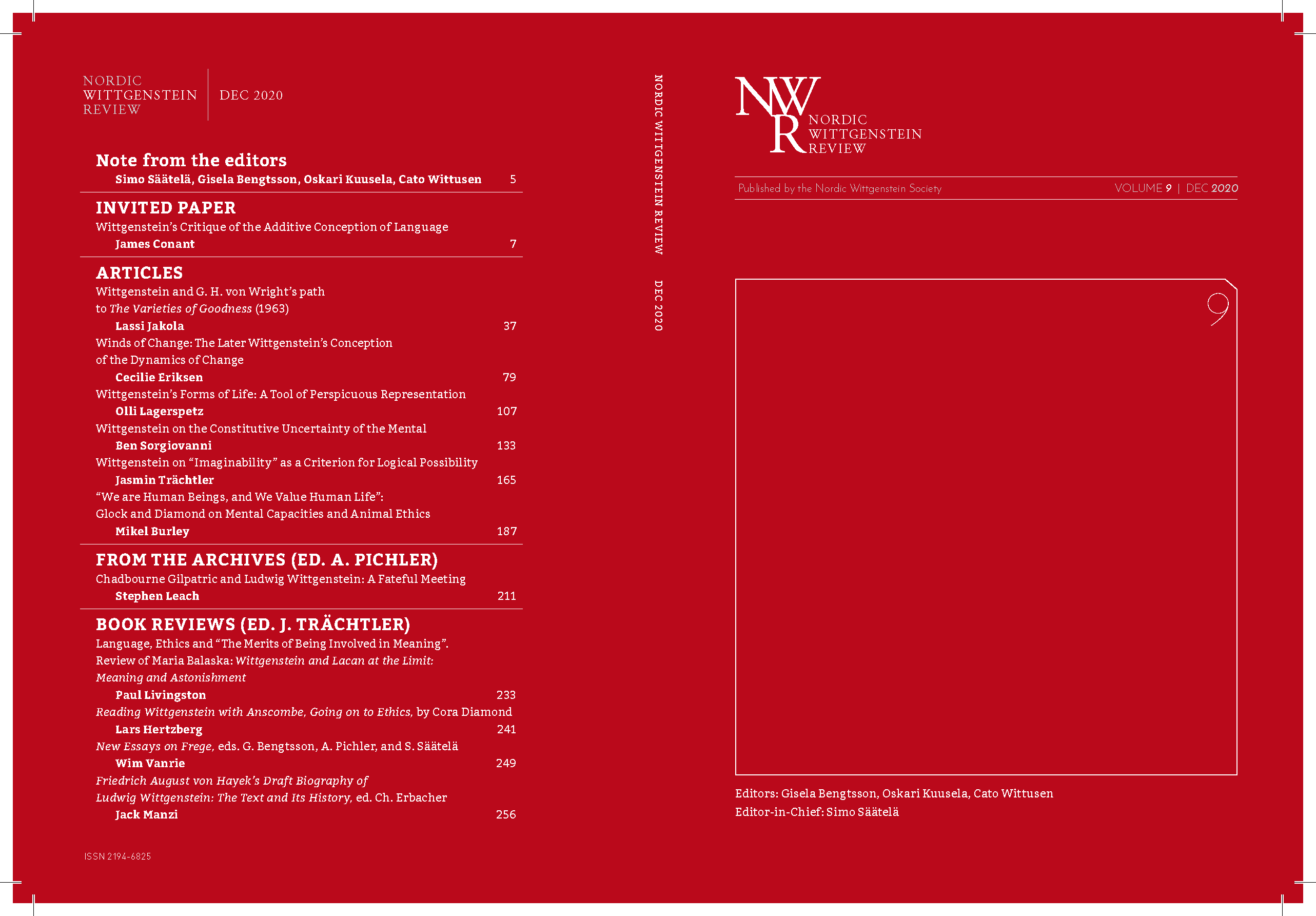Winds of Change: The Later Wittgenstein’s Conception of the Dynamics of Change
DOI:
https://doi.org/10.15845/nwr.v0i0.3515Keywords:
later Wittgenstein, dynamics of change, historical explanationAbstract
The theme of change is one of the most prominent traits of Wittgenstein’s later work, and his writings have inspired many contemporary thinkers’ discussions of changes in e.g. concepts, ‘aspect-seeing’, practices, worldviews, and forms of life. However, Wittgenstein’s conception of the dynamics of change has not been investigated in its own right.
The aim of this paper is to investigate which understanding of the dynamics of changes can be found in the later Wittgenstein’s work. I will argue that what emerges is a rich and complex picture that has the potential to aid our thinking in politics and elsewhere when developing strategies for creating changes. It can do so both as source of inspiration and by countering tempting, yet ultimately problematic ways of conceptualizing change like the hope for transforming harmful traditions and social practices with the help of a general explanatory theory of the fundamental dynamics of changes.
Downloads
Published
How to Cite
Issue
Section
License
Copyright (c) 2020 Cecilie Eriksen

This work is licensed under a Creative Commons Attribution 4.0 International License.
NWR uses the Creative Commons license CC-BY.
Vol. 1-3 used CC-BY-NC-SA. The collected works copyright ownership for Vol. 1-2 were shared by Nordic Wittgenstein Society and ontos Verlag/De Gruyter.








